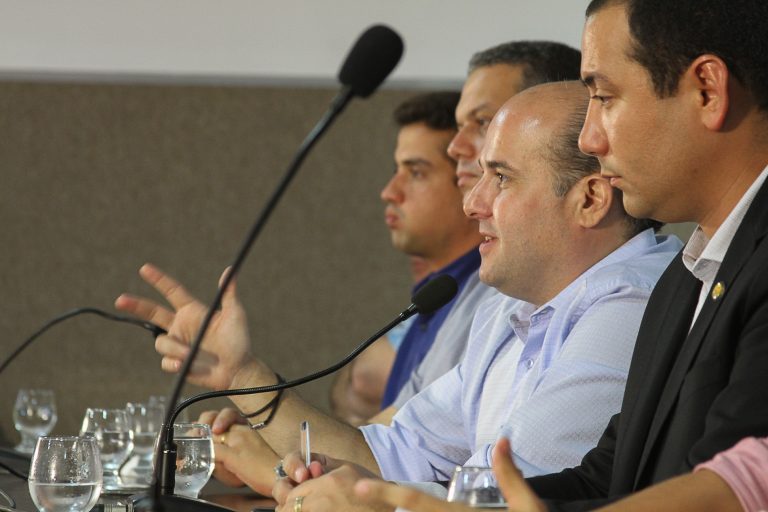Fortaleza, a city known for its sunny beaches, night life and historic landmarks, is also now recognized for dramatically improving the safety of its streets.
Fortaleza Mayor Roberto Claudio recently announced that the city of 2.5 million saw a 40 percent reduction in road crash deaths in just four years, from 2014 to 2018. Mayor Claudio called the success a result of the “power of will.” That will spurred Fortaleza’s step-by-step investment in measures to promote road safety: increased law enforcement around key risk factors, mass media campaigns, better data collection, and redesigned intersections that prioritize pedestrians and cyclists.
Vital Strategies and other partners in the Bloomberg Philanthropies Initiative for Global Road Safety are using this recipe for road safety in 10 cities around the world, and Brazil’s fourth-largest city is among the most successful.
“Fortaleza has seen particularly strong results because of a combined effort of political leadership, a strong technical staff and ever-growing community engagement,” said Jonas Romo, Regional Deputy Director for Latin America at Vital Strategies. “The city took a multi-pronged approach to enforcing helmet use, drink driving and speeding, day in and day out, and redesigned streets to give more space to pedestrians and cyclists. Changing the approach to road safety from just a transportation issue to a public health issue demanded a lot of planning and coordination.”

In the last six years, cycling infrastructure in the city nearly tripled, and more than 4,000 square meters of asphalt originally designed for cars has been returned to pedestrians. The city also invested more than $600,000 USD on mass media campaigns addressing the risk factors that cause most of deaths and injuries on Fortaleza´s roads: drink driving and lack of helmet use. The city also trained journalists, which resulted in better coverage of road crash stories and better analysis of the road safety interventions the city has been implementing.
Fortaleza is now one of just a few cities in the world on track to meet the United Nations Sustainable Development Goal road safety target of halving traffic fatalities by 50% by 2020.
During 2018, 226 road traffic deaths were recorded traffic and health authorities, compared to 377 deaths in 2014.
“Deaths and injuries caused by road crashes are not mere coincidences, and we see this problem as a public health epidemic,” said Mayor Roberto Claudio. “We will continue to work tirelessly to reduce these [numbers] more and more. No death in traffic is acceptable.”
About the Bloomberg Philanthropies Initiative for Global Road Safety
The Bloomberg Philanthropies Initiative for Global Road Safety (BIGRS) works with the world’s leading road safety organizations to implement road safety activities and coordinate with in-country governmental and non-governmental stakeholders. BIGRS places an emphasis on achieving outcomes, and on using high-quality monitoring and evaluation mechanisms to continually assess progress.
